Austin Jazz Got Schooled by James Polk
Multi-instrumentalist has been active- and inspiring- for six decades
Jazz Legacy: A Community Tribute to Dr. James Polk will be held Sunday Feb. 19 at the Victory Grill (1104 E 11th St.) from 5-7 p.m.
Jazz keyboardist James Polk has been a major figure in Austin music since he came up from Corpus Christi in 1959 to attend Huston-Tillotson College. Dr. Polk (who uses that academic title less as an affectation than to differentiate himself from the 11th President), left town from ‘78- ‘87 to play organ with Ray Charles, eventually expanding into an arranger/conductor role. But he had a rich musical life in Austin before and after. The 82-year-old “godfather of Austin jazz” played with Elias Haslanger’s Church on Mondays at the Continental Gallery for years and still does on occasion.
Austin’s jazz scene was happening in the mid-to-late-70s, with the Casablanca and Blue Parrot clubs at 15th near Lavaca, Mackedrick’s Treehouse on Dawson at Barton Springs, Piggy’s on Congress, Buffalo Grille on W. Sixth, and the pre-roof Liberty Lunch. You had all these adventurous bands: 47 Times Its Own Weight, Tomas Ramirez and Jazzmanian Devil, Starcrost with Lisa Farrow, Alex Coke, the Electromagnets, who’m I forgetting? Doesn’t matter, James Polk was the most highly-regarded musician in the bunch. The James Polk Quintet (“and Company” when there were more) packed the Casablanca every Sunday and Monday night. Dr. Polk and the kids that would later be called Passenger were pretty badass if fusion was your thing.
Fans of Leonard Cohen will recognize the names of Polk’s then-bassist Charles “Roscoe” Beck, guitarist Mitch Watkins, sax player Paul Ostermayer, keyboardist Bill Ginn and drummer Steve Meador, who first backed the Canadian songwriting tower on 1979’s Recent Songs and the subsequent tour. Bassist Beck eventually worked his way into musical director. The band grew out of UT’s Jazz Ensemble, though they could play anything, backing Joe Ely on 1984’s Hi-Res project.
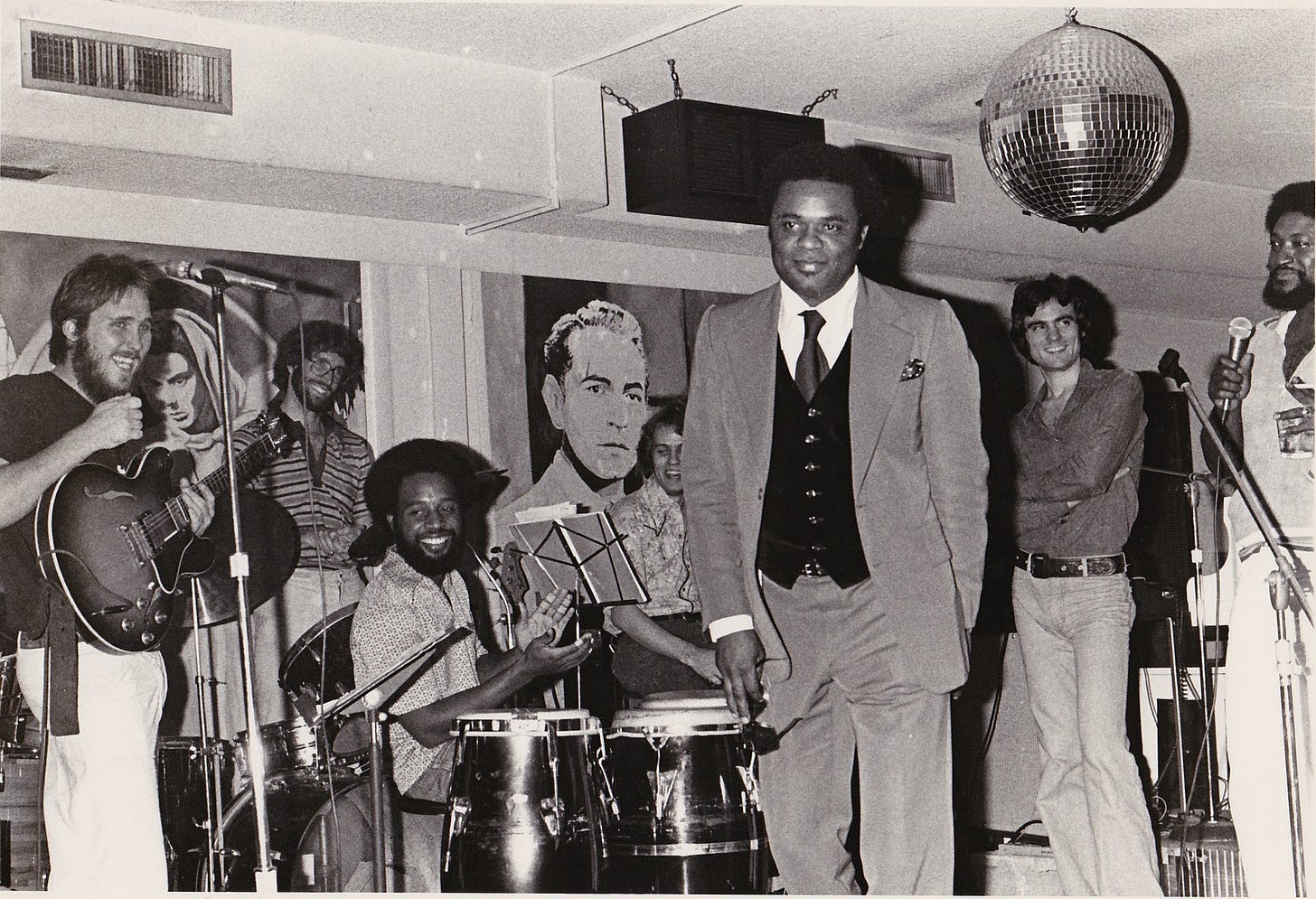
A child of musical parents, Yoakum-born Polk was taught violin in grade school, then played trombone in the high school band. He also knew enough bass for Lionel Hampton to take him on a worldwide tour. The gig started at San Antonio’s HemisFair in 1968, when Hamp’s bassist didn’t show up, and the vibe great plucked Polk from the house band. Polk was also adept at sax, but keyboards were his kingdom.
Tired of the ragged road life, and lack of recognition back home, Polk retired from music around 1971 and worked fulltime as a buyer at IBM. But bassist Beck, a native of Poughkeepsie who moved to Austin at age 17, kept coming around with records by newer acts like Herbie Hancock and Weather Report, to try and light a fire under the big man. It worked. Polk quit the straight job in ‘75 to make music his life, or at least his livelihood, once again. That the audience was non-existent at Casablanca in the beginning made James Polk’s group of young Caucasians better. “He’d stop right in the middle of a song and come over and play the beat that he wanted,” Steve Meador recalled in a 2020 Zoom conversation with Church On Monday drummer Scott Laningham. It was taken in the spirit of instruction and used for improvement. These jazz kids in their ‘20s were looking for mentorship, and they got a great one. Within months, the Casablanca was packed. A live recording of “Polk Chops” from that era is high-energy jazz at its funkiest. “Nobody could ever accuse us of laying back,” Beck said with a laugh.
The first original music Passenger performed was written by Polk. The second was by Leonard Cohen, who they met through Joni Mitchell when they went to L.A. in early ’79 for a couple of gigs. Joni’s young guitarist Robben Ford was knocked out and brought them to the attention of his boss and her German-raised producer Henry Lewy, who was working on Cohen’s Recent Songs. This was the extremely necessary followup to Death of a Ladies Man, the “doowop nightmare” (Rolling Stone) produced by Phil Spector. The Recent Songs sessions found Cohen, deep in Zen Buddhism studies, bringing an Eastern European aroma to the quiet jazz alley he was ducking down. Cohen jokingly referred to these adventurous players from Texas as “the jazz police,” and they in turn called him Lenny. Passenger came in when the project was kinda dragging ass, playing on the last four tracks that made it an album: “Humbled in Love,” “Our Lady of Solitude,” “The Gypsy’s Wife,” and “The Smokey Life.” Singer Jennifer Warnes credits those sessions with giving Cohen a new direction for his live performances, though the band would learn to play quieter because the lyrics are the star of a Leonard Cohen show.
While Passenger was hitching a ride with L.C., Polk was into his decade on the road with Brother Ray. He came back to Austin in the late ‘80s and settled down, remarrying wife Jeannie, whom he’d divorced 12 years earlier. His cool piano/bass duo Polk & Beans with Beans Richardson, and played the opening night of Top of the Marc in August 1989 and many nights after. Upstairs from Katz’s Deli, that upscale jazz club had an impressive 11-year-run before it closed and was reborn as Momo’s.
Polk grew up on the Gulf Coast enthralled by the R&B he heard on the radio and from touring acts like Percy Mayfield and B.B. King. In college in 1960, he played blues at the Flamingo Club (1203 Chicon St.), but his passion was turning to the freeform jazz explorations of Ornette Coleman and Thelonious Monk. Polk tried to sneak some of those new sounds in at the Flamingo, but the crowd wouldn’t have it. “We can’t dance to that shit!” Polk settled in the middle ground- jazz with an R&B groove- that would become his trademark. “I never wanted to get so far out that the masses didn’t understand my music,” Polk told Ronald Powell in an October 1977 Statesman article titled “Jazzman James Polk Finds His Audience.”
His ‘60s soul band James Polk and the Brothers, featuring trumpeter Martin Banks and W.C. Clark on bass, would play weekends at the Hideaway Club on E. 19th, but they had trouble getting booked west of the freeway because of their name. “Club owners thought we were gonna burn their club down,” Polk said. He integrated the Brothers in the early ‘70s, with Lubbock natives Angela Strehli on vocals and John X. Reed on guitar, and got booked downtown at Muther’s, before it became Castle Creek. “I used to go and see him perform before I was a professional,” Strehli said of Polk to Blues Blast magazine. “He’s such a fine person. To be in a band of his was just an instant education about the tools you need to run one yourself.”
It was always easier for Polk to get hired just playing jazz, which he did with success in the ‘60s at the New Orleans Club. He was not only a member of the popular Blue Crew, with drummer Gerry Storm and Brazilian bassist Luis Natalicio (a UT professor), but Polk led an octet, featuring Pat Murphy, Fred Smith and Melvin Scott on saxes, Bob Bruno on bass, and drummer John Whitehurst. Polk and experimental accordionist Bob Sardo were the two most prolific bandleaders in the Austin jazz scene.
To supplement his income and reinforce his calling, Polk was an associate professor of jazz studies, first at his alma mater, then at Texas State University in San Marcos, where he was named Professor Emeritus on his retirement.
Despite his musical talent, Polk’s legacy is in leading. A teacher and music director at Booker T. Washington High in Elgin after graduating from H-T in ‘62, Polk has always been a natural instructor. When he returned to his hometown in 1964 to play the Corpus Christi Jazz Festival, his 16-piece band was made up almost entirely of his high school students. He then went on to teach a whole generation of notable jazz players.
In the fields of country, blues, rock and jazz, the Austin music scene’s Mount Rushmore would have four faces: Willie Nelson, Stevie Ray Vaughan, Roky Erickson and James Polk.
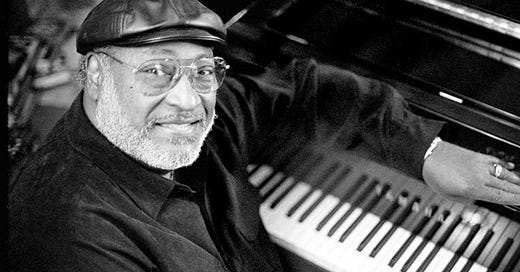


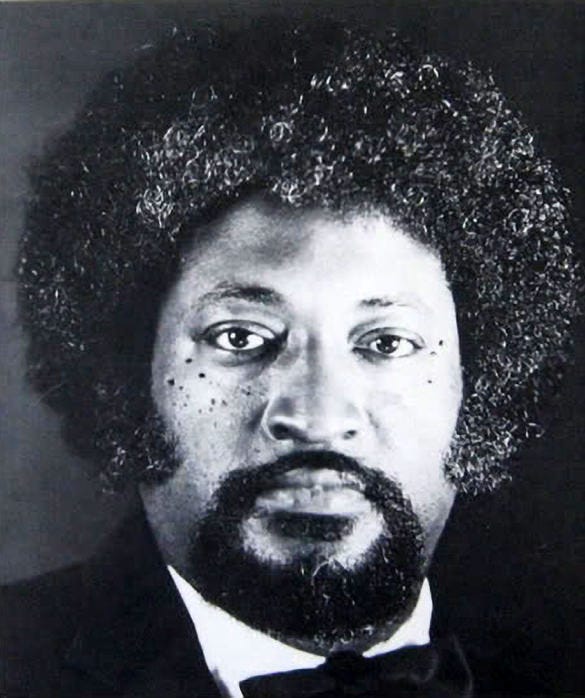
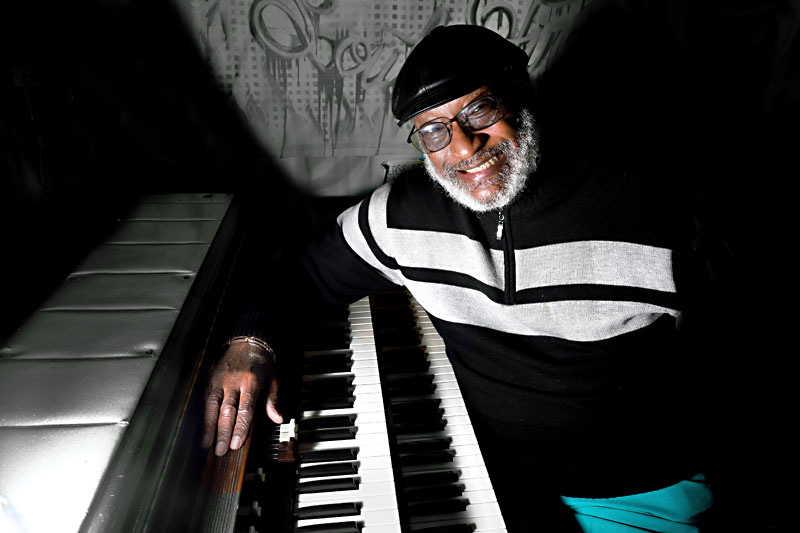
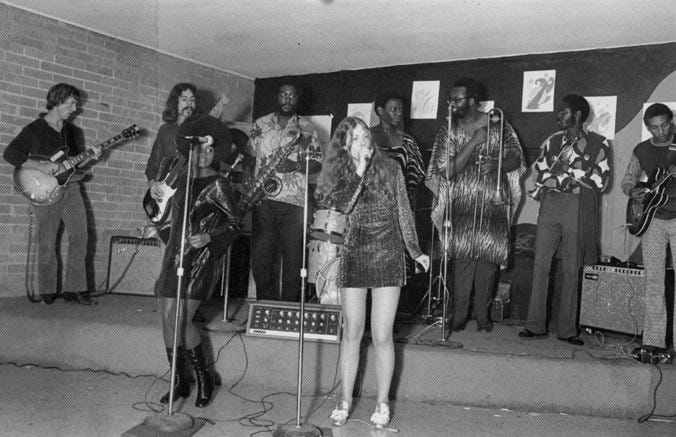
Great article, great musician. One small correction - wasn’t Mackedrick’s Treehouse on Barton Springs and South 5th??
Michael, Sonobeat Records has a complete LP that they never released on James, maybe it’s time ?